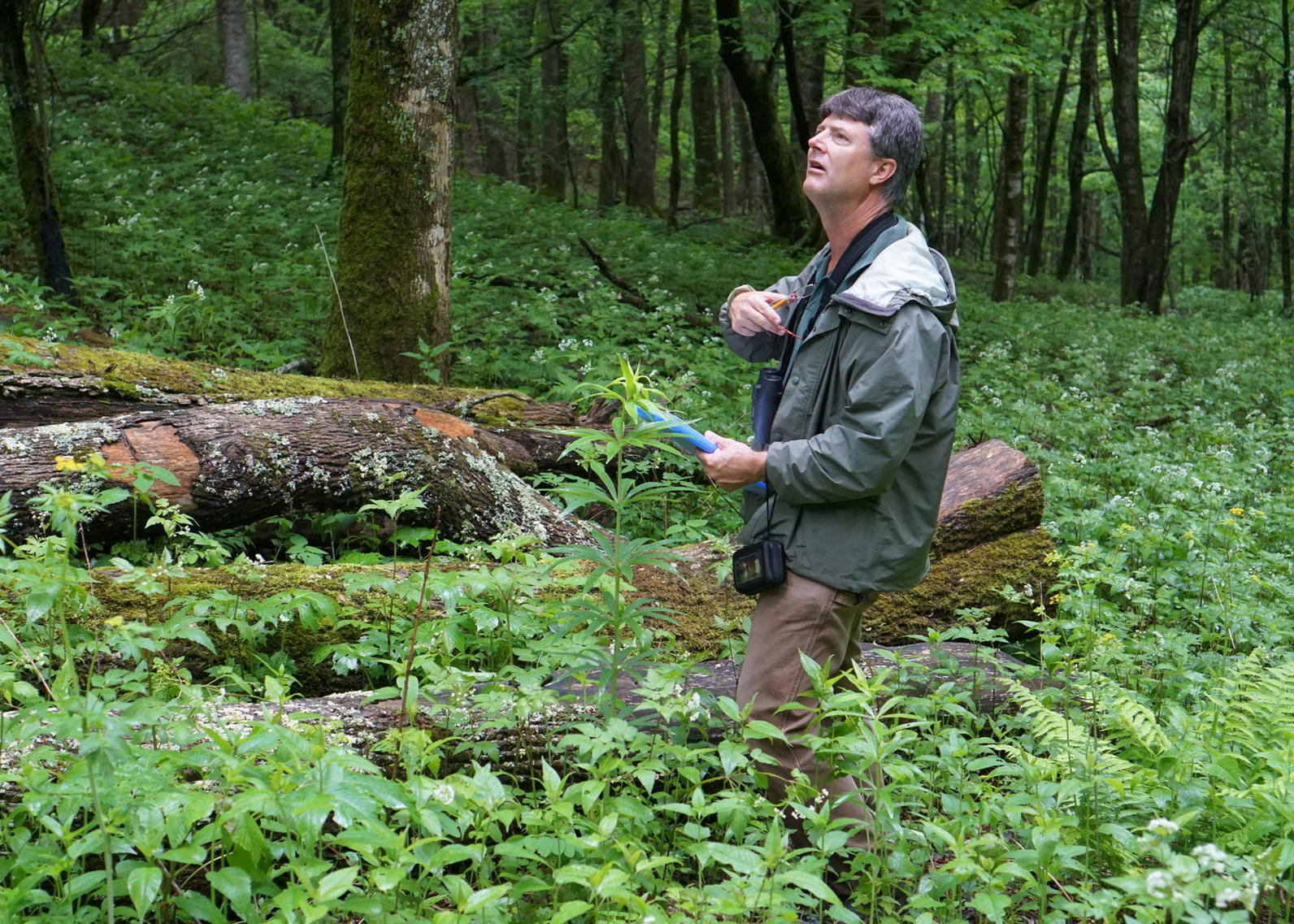Audubon North Carolina's Working Lands program represents the future of the Atlantic Flyway's priority bird species. In North Carolina, 80% of the land is privately-owned: if Audubon can inform bird stewardship practices on just 1% of these lands, we have the ability to positively affect more than 300,000 acres!
In this series, we profile local landowners to share all the amazing and exciting ways various properties can be enhanced to support struggling populations of priority bird species.
"I live up near Roan Mountain, one of the state's focal areas for Golden-winged Warblers," says landowner Richard Broadwell. "My background is in natural resource management, conservation, and forest management. I moved up here for work in the early 2000s and the previous landowners had been such good stewards... I wanted to keep up their good work, follow their good example."
Broadwell's land had been logged in the early 20th century, and parts had been used for agriculture - mostly subsistence farming and small grazing areas dotted with the occasional apple tree. Over the past 50-60 years, however, everything had grown up in a uniform, dense hardwood forest.
"Since I’ve owned my property I’ve been looking for ways to benefit wildlife," explains Broadwell. "I've been getting to know the species that are here and I want to make it a more interesting and attractive place for myself and the animals that depend on it."

After attending an Audubon NC Foresters Workshop at Roan Mountain back in 2014, Broadwell became aware of the potential to manage forest to create early successional habitat for Golden-winged Warblers in particular.
"I thought it would be good to learn more about the concepts of the various cost-share programs and apply them to my own property so I could offer a unique service to the landowners I serve, and give them a first-person example," recalls Broadwell. "I contacted the Natural Resources Conservation Service and Aimee Tomcho came out with now-retired NC Wildlife Resources Commission Technical Assistance Biologist Patrick Farrell to inspect the property."
Aimee Tomcho, Audubon NC's conservation biologist, saw good potential for early successional habitat on Broadwell's land. Tomcho and Farrell went out with Broadwell, ranging all over the property, ultimately focusing on three spots to create openings in the hardwood forest.
"We were looking for areas that had younger trees, and small understory species like apples and hawthorns, and we planned to thin out surrounding trees to re-establish some openings," explains Broadwell. "We spent the better part of a day checking out sites and looking for best spots."

In July of 2017, Farrell forwarded Broadwell's application on and he entered into contract with the local Natural Resources Conservation Service. After walking the property and flagging all the trees to keep, a crew came out to thin the rest.
In spring of 2018, Tomcho returned to survey the three restored Golden-winged Warbler habitats. "Bird diversity has increased because Richard increased forest structural heterogeneity," explains Tomcho. "By adding six acres of forest openings on his 200 acres, he has successfully attracted species like the Eastern Towhee. We didn't expect to detect Golden-winged Warblers this spring, as it's only the first spring after habitat restoration. We do hope to in the future."
On their three counts in each of the three new openings, Tomcho and Broadwell spotted (and reported to eBird) Yellow-bellied Sapsuckers and a Scarlet Tanager, a Hooded Warbler, and a Black-throated Green Warbler amongst many others.
As he awaits this potential Golden-winged Warbler arrival, Broadwell is excited for the progress that has been made and what's still to come. "I'm excited," he shares, "I put in a trail system and it’s been nice to experience the variation of habitat as you walk through the woods. As the years go on, it will be great to see new plants come in to the area as well as more diverse wildlife."
If you’re a landowner interested in accessing funding to support environmentally sound practices- especially those that benefit birds- get in touch by emailing atomcho@audubon.org.



